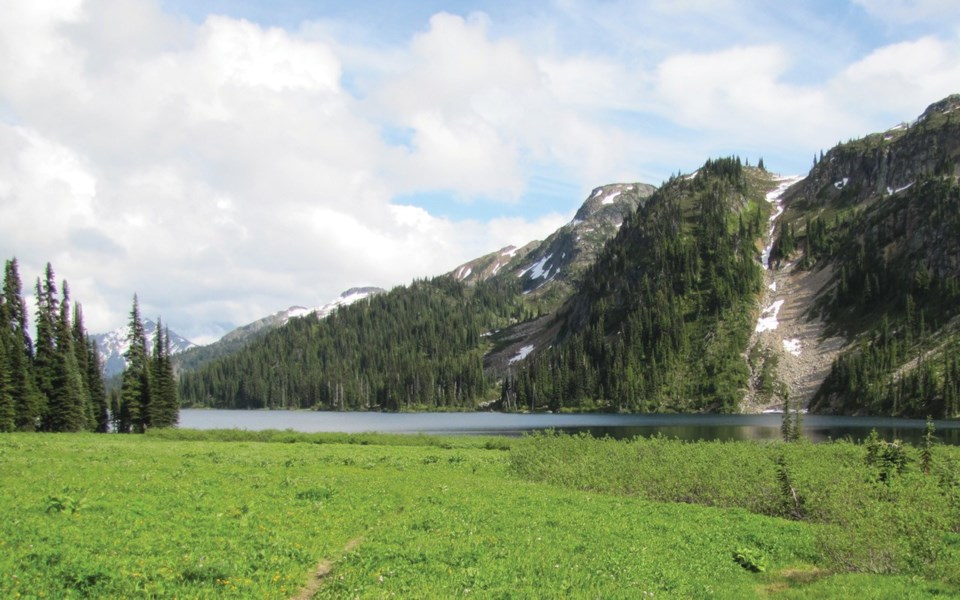Blackcomb Helicopters is altering a contentious heli-biking tenure application for the Pemberton Valley after significant public and stakeholder opposition.
The company—which has been offering heli-biking in the Pemberton Valley for more than a decade—has decided to axe an element of its application that would have seen it build three trails in the Tenquille to Owl Lake Recreation Area (TOLRA).
"We opted to remove the TOLRA from our application in the interest of the public," explained Andy Meeker, base manager for Blackcomb Helicopters.
"It seemed like the right thing to do from the input we received."
The decision comes as positive news to the Pemberton Wildlife Association (PWA), which manages the TOLRA on a volunteer basis under the guidance of a provincial recreation officer. It publicly opposed the TOLRA element of the proposal (See Pique, July 14, 2018, "Pemberton heli-biking proposal raises concerns").
"We have a good working relationship with Blackcomb Helicopters," said PWA President Allen McEwan.
"It's no surprise to us that based on the negative feedback they got from last year's application that they chose to voluntarily withdraw those trails that we were opposed to."
McEwan said that while he is pleased with the decision to change course, he also fears that another helicopter operator could make a similar application for the wilderness area.
The TOLRA is already popular for commercial recreation companies, both in the summer and winter, said McEwan.
"What it boils down to is tourism has expanded so rapidly that the regulating agency—that being the [Ministry of Forests, Lands, Natural Resource Operations & Rural Development] in Squamish—has not had a chance to keep a handle on it," said McEwan.
"They're doing their best, but are overwhelmed by the number of applications, and the number of entrepreneurs who just went out there without any form of license or tenure and just went ahead and did their thing."
That said, McEwan applauded the ministry for beginning to regulate commercial heli-biking in a more substantial way.
Blackcomb Helicopters is currently in the process of applying for a commercial permit for the area, while it awaits approval for its larger tenure application.
"Things are changing. The province wants all commercial activity to be regulated," said Meeker. "It's just a process we are going through with the province to establish some proper regulations in the sport."
According to Meeker, the company plans to transition its heli-biking away from Mount Barbour once its tenure application is approved.
That would mean significant investments in building first-in-class mountain biking trails over the remainder of its potential tenure, which includes Rutherford Ridge, Mackenzie Ridge, and Ipsoot Mountain.
And while Blackcomb Helicopters has won the approval of the PWA, it still faces some opposition, with Village of Pemberton (VOP) council passing a resolution not to support the Blackcomb Helicopter tenure application during a July 2018 council meeting.
At the time, council voiced concern about increased air traffic, disruption to sensitive ecosystems and wildlife and added noise as reasons to oppose the proposal.
"It's a high level of activity that could have impacts to wildlife as well as disruption to the folks that live down there," said VOP Mayor Mike Richman.
(VOP council has not commented on the changed proposal.)
With mountain biking growing in popularity, Meeker said that the company would like to build its heli-biking operation, which remains a relatively small part of its overall business.
Axing the TOLRA from the application and focussing on appropriate areas is simply the right way forward, he said.
"We're a local based company and we have to respond to our local stakeholders," said Meeker.




